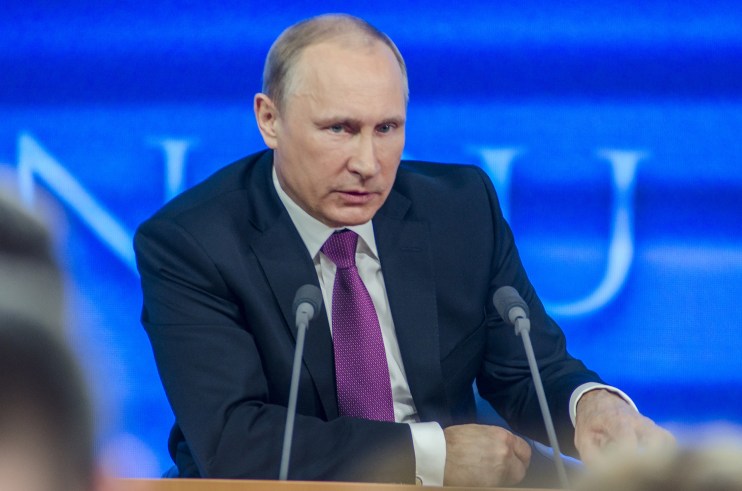Putin ramps up pressure on West with plans to terminate exports

Russian President Vladimir Putin has signalled he could terminate exports of products and raw materials, in response to sanctions imposed by the West on the country’s financial institutions and energy supplies.
He has now signed a broad decree forbidding the export of materials to people and entities on an upcoming sanctions list – which he has instructed the government to draw up within 10 days.
The escalation of economic conflict puts the West under further pressure as the European Union (EU) leans towards a ban on Russian oil imports, making any decisions to phase out Kremlin-backed energy supplies particularly painful.
It also follows the Russian government bringing in rouble-for-gas payments for overseas buyers for Russian gas.
Putin explicitly framed the decree as a response to measures brought in by the US and its allies to deprive “the Russian Federation, citizens of the Russian Federation and Russian legal entities of property rights or the restricting their property rights.”
The decree sets out “retaliatory special economic measures in connection with the unfriendly actions of some foreign states and international organisations.”
The US and its Western allies have brought in restrictions on Russia’s central bank, financial institutions, multiple oligarchs and on the sale of its energy supplies, in response to Russia’s brutal invasion of Ukraine in February.
The White House has banned all Russian fossil fuel imports, while the UK has announced plans to phase out Russian coal and oil by the end of the year, with the EU announcing similar measures for Russian coal supplies.
EU closes in on Russian oil import ban
The trading bloc is now moving closer to imposing a sixth package of sanctions on Russia, following its brutal invasion of Ukraine, including an embargo on oil imports.
The phasing out of Kremlin-backed oil supplies will be part of a wider range of measures, including restrictions of financial institutions.
Josep Borrell, head of the foreign policy unit at the EU’s executive European Commission, said: “We are working on the sixth package of sanctions which aims to de-SWIFT more banks, list disinformation actors and tackle oil imports.”
An embargo on Russian oil would deprive Russia of a vast revenue stream, but reaching an agreement on the measure has divided EU member states – which depends on the country for around 26 per cent of its oil imports.
While Germany has dropped its opposition, Hungary and Slovakia still have reservations about an oil ban amid escalating inflation and surging energy prices.
Both countries could be excluded from the EU’s measures, in an attempt to pass through the sanctions, which require unanimity.
Since Russia’s invasion of Ukraine in February, the EU has spent €20.3bn on oil and €27.2bn on gas from Kremlin-backed energy sources, according to the Centre for Research on Energy and Clean Air.
The latest round of sanctions will also affect Sberbank Russia’s top lender, diplomats told news agency Reuters, adding to several banks that have already been excluded from the SWIFT messaging system.
European Commission President Ursula von der Leyen is expected to spell out the proposed new sanctions tomorrow.
Meanwhile, Europe remain the top destination for US exports of liquefied natural gas (LNG) which fell around percent last month, according to Refinitiv.
The continent remains highly dependent on US LNG supplies as it looks to shift away from Russian energy sources.